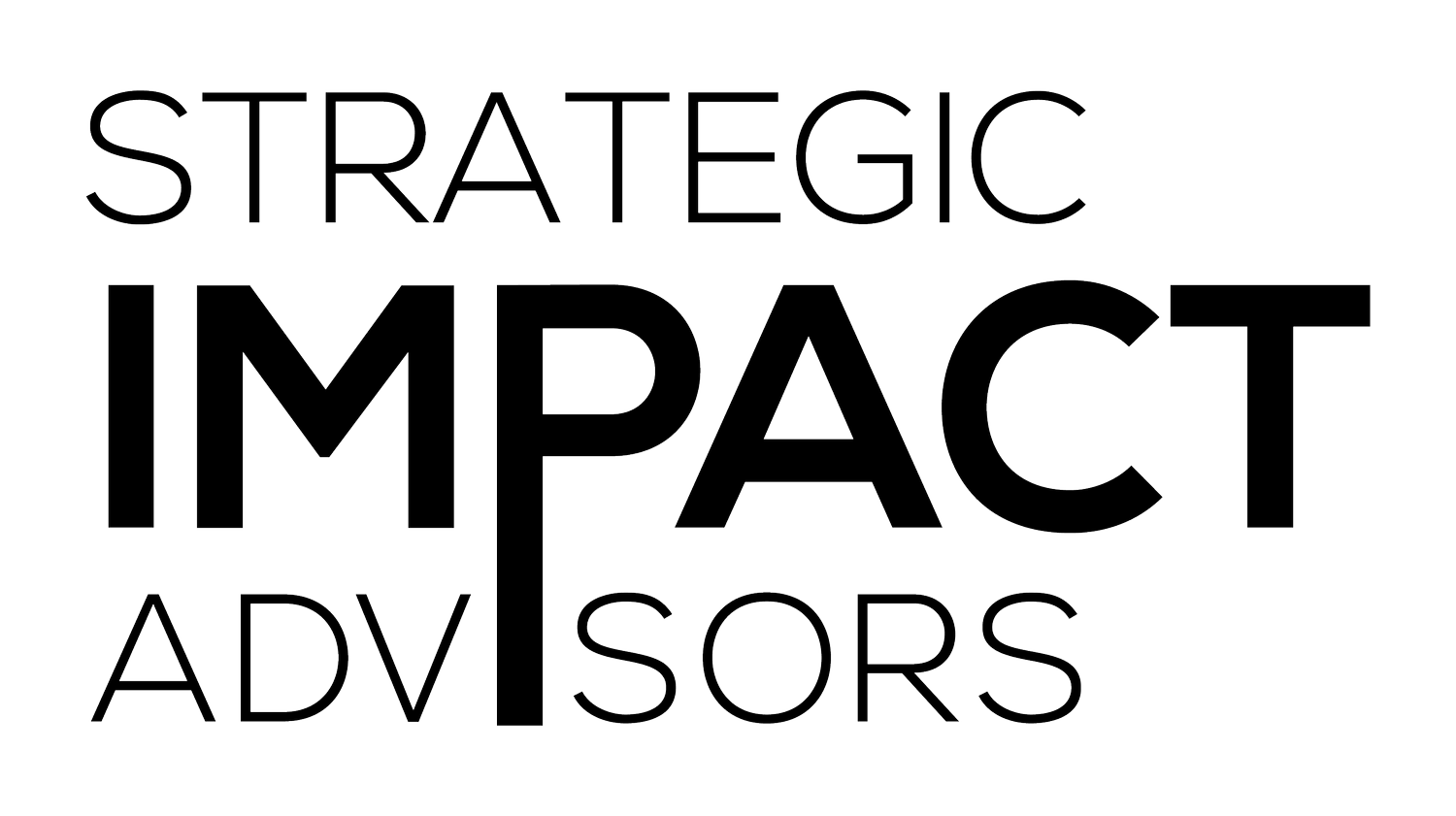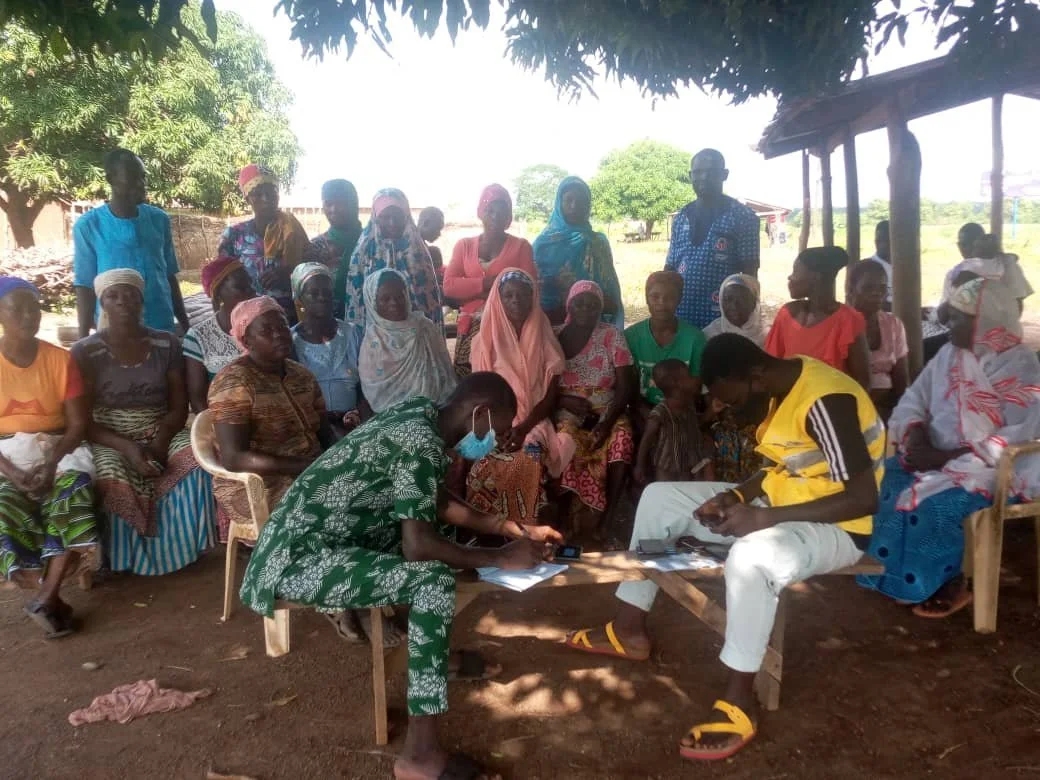Impacts of digital financial literacy in the lives of rural Ghanaians
Exactly one year ago, SIA launched the Hey Sister! Show Me the Mobile Money! digital financial literacy campaign across Ghana, Malawi, and Uganda. Funded by USAID, Hey Sister! is an interactive voice response (IVR) curriculum designed to provide women with the skills they need to use digital financial services (DFS) with confidence.
Promoting their access to DFS through the audio content and facilitated group discussions has become one of the surest ways to reducing financial literacy gaps in Ghana.
Throughout the campaign, we’ve strived to expand partnerships to reach local women’s advocacy institutions, microfinance institutions, international and local NGOs, agricultural value chain actors, and grassroots organizations with nationwide coverage. These outreach partners have embedded the Hey Sister! curriculum into their training plans across the regions of Ghana, where digital literacy and skill are limited and many are susceptible to fraud and scams. To ensure access to anyone interested, we’ve made campaign resources and materials open source and available via this link.
We’ve come a long way since October 2020. Over 46,000 participants have accessed the curriculum through the Vodafone 321 IVR platform and organized facilitator discussion meetings — almost 90% of them women. Audio lessons have been translated into six local languages including Ga, Ewe, Twi, Hausa, Dagbani, and Kaseem — all available here for free access and customization if needed.
Thanks to an ongoing partnership with the MTN Ghana Mobile Money team, Hey Sister! is now hosted on 170 platforms and available to over 23 million subscribers on the mobile voice network.
Our local facilitators have made great progress and impact by training their existing group members and serving as local champions in training other women.
Improving women’s knowledge and confidence
Hey Sister! lessons have built women’s competence and knowledge around executing financial services such as saving money, making payments, borrowing money, and repaying loans. About 89% of all women trained indicated that the lessons are relevant to their lives.
“With my full participation in the Hey Sister! audio series of lessons on savings, budgeting, and managing household expenses, I’m able to save daily 10 cedis on my phone — amounting to 200 cedis month to cater for future contingencies.”
“For two years I have been part of the VSLA group in my community. This training has improved my understanding of a savings plan.”
Participants working with our local partner Jireh Microfinance confessed that they wouldn’t have taken out certain loans if they’d known what they do now. Many are now repaying loans through mobile money. In the past, when they paid in cash, they would either have to travel to the nearest Jireh branch or wait for field officers to come and collect.
“Initially I took any loan that is available at any time, but through this Hey Sister! education I now know that I should only take a loan when it is very necessary and the interest rate is low.”
Helping women use new digital technologies and financial services
Most peri-urban and rural women in Ghana were not digitally literate enough to carry out financial services on smartphones and other digital channels prior to their participation in Hey Sister.
We took a training of trainers approach, where we taught local facilitators and champions how to facilitate the lessons so they could commit to training their participants in smaller groups in ongoing meetings. For greater reach and sustainability, we provided Bluetooth speakers to improve listening experiences and support socially distanced learning during the COVID-19 pandemic and beyond.
Trainers also work with mobile money service providers to register wallets for participants, offering practical demonstrations of how to use mobile phones for expanded mobile money use cases such as buying airtime, savings, payments and loan repayment, and bank to wallet transfers.
Christ Community Chapel, a grassroots facilitator, creatively instituted awards of Hey Sister certificates for participants after completion of the curriculum. Amina Alhassan, an enthusiastic participant from Tampion receives her certificate, in the Nanton district in the Northern region of Ghana. Acceptance and acknowledgment of the program by local chiefs and community leaders has been a strong catalyst for women to hold the course in high esteem.
Increasing digital financial security awareness
The issue of security with new technologies is a large barrier to women’s adoption of DFS. Avoiding fraud and scams are two of our most popular Hey Sister! lessons. Some women alluded to having been victims of mobile money fraud in the past, but with routine discussion of Hey Sister! episodes they now feel better equipped to avoid fraudsters and know not to share their wallet PIN with others.
Link Ghana coordinated mobile money accounts activation for around 2,400 shea nut collectors in the Gushegu and Karaga districts in the Savanna region of Ghana, mainly to receive payment for work done and savings purposes.
Send Ghana mobile money agents activate mobile money accounts for customers of Saboba credit union after a Hey Sister! training.
In the months to come, our hope is that Hey Sister! will continue to make waves in enhancing financial inclusion and accelerating digital transformation across the country — that partners will continue to make use of the content to empower Ghanaian women to take control of their financial lives.



